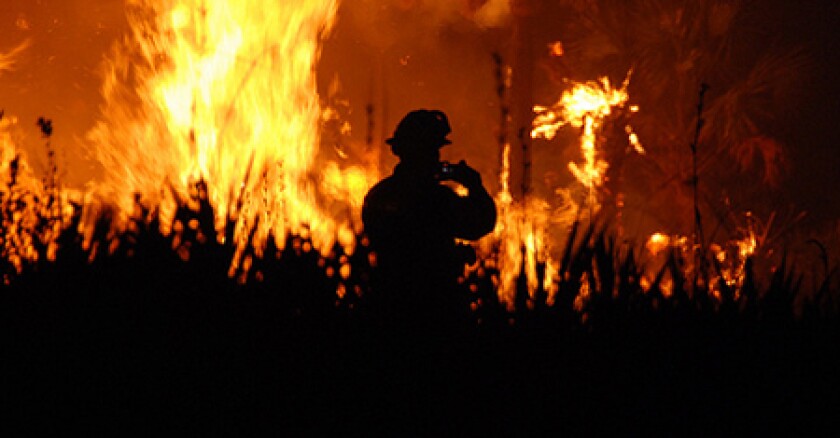According to the institution's website, resources on wildfire-related data, models and tools are currently siloed. The UCSD platform will serve as a repository of open data, scientific research and solution ideas, with community members able to contribute data and models and share their innovations to allow researchers, innovators and practitioners to collaborate more effectively.
“This new platform will be a critical hub for the fire research community and state and federal agencies while also helping fire response teams find new solutions to reduce risk and more effectively manage wildfires,” Rep. Juan Vargas said.
The commons launched Oct. 28 with a virtual live event hosted by UCSD and its collaborators on the project — the National Institute of Standards and Technology, cyber infrastructure platform WIFIRE and Proactive Wildfire and Environmental Sustainability Solutions (ProWESS).
Due to climate change, the nature of wildfires is rapidly evolving, making older resources less useful. According to the news release, 13 of the most devastating wildfires in California state history occurred in the last eight years, and California is not alone. Texas, Alaska and Hawaii are not historically known for large fires but have seen an increase in wildfire frequency and intensity recently. In addition to damage to vegetation and property in the burn path, fire smoke can release pollutants that negatively impact human health and Earth’s atmosphere.









